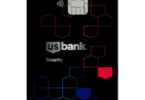Chase has updated the application form for business credit cards, currently this new form is showing when logged in on regular applications. The new form is not showing on referral links and when not logged in. The form is largely the same with two key differences:
- Annual business revenue can no longer be zero
- Requests ‘Business Established Date’ rather than ‘Years In Business’
American Express has required annual business revenue of $1,000 for as long as I can remember. I wouldn’t be surprised if this was an effort by Chase to tighten business lending due to the COVID-19 crisis, Chase also suspended business affiliate links recently to most partners.
Hat tip to ZeSexyPanda







Confirming this, just got denied for CIU for a new business with start date of 04/2020. Already have 3 of their business card (on top on personal) but those were under sole proprietorship.
The 3 ink card SUBs are my favorite and a key reason i stay under 5/24. This is unfortunate but not overly surprising. Chase is trying to reduce risk in times when small business are more likely to fail. Doesn’t seem to be geared at churners. Still possible to get approved if you have established accounts with some funds and some business income listed on app. So shouldn’t affect me unless things get worse.
The reason they want the business establishment date is because they aren’t approving business cards for businesses that haven’t been established for at least 2 years and if you have a business checking account with them it has to have at least 500 in it or auto declined. they are preparing for another credit crises at least for the near term.
Source?
I applied for a Chase biz card last Thursday (the 9th), and got the new app page. Biz start date was 05/2019. It was automatically approved on Friday (the 10th). Either what you’re saying is wrong, or the new app page went up before they made the changes.
It appears to have changed on 4/16/20. You applied just in time!
> if you have a business checking account with them it has to have at least 500 in it or auto declined
As of when? I applied and was approved for my third CIP on April 1st, and my Chase business checking has been sitting at $15 balance for a few months. If this requirement is real it’s either very new or wasn’t getting enforced on applications through referral links.
They are now doing this for opening business checking accounts as well. I opened for my sole proprietorship on 4/15/20 and was asked for a specific date when I had started the business. The rep said if I didn’t know then I could just give her a the month I started it though, YMMV.
The IRS has no involvement with or interest in data submitted on business credit card applications. The implications of submitting inflated business revenue are realized only if you were to run up a balance on the card and declare bankruptcy. A bankruptcy court generally would not allow you to write off a debt resulting from a credit line obtained under false pretenses as the bank has the law on its side.
I doubt this is related to the virus. More likely, a step toward curbing fraud. They know churners are doing this. Just like BofA requiring documentation and their shutting down of accounts months later. Expect more of this, particularly from Chase.
+1 IIRC Amex used to have a drop down menu. The lowest option was something like $0-100k. That’s pretty much all of us. LOL
It’s risk management pure and simple in an age where a crap ton of people have stopped paying their credit cards.
This might be obvious to most people, but revenue does not (always) equal income. Your business might have a large revenue, but no income (due to expenses) for tax purposes.
Exactly. Run a low-profit resale business, keep good records, and report it on your taxes. You’ll have business revenue for the application, and documents (a quick year-end report and Schedule C should be plenty) for verification. That grants you access to biz cards without having to lie about actually having one, and means you don’t have to abandon applications when they ask for verification.
I’m seeing a lot of DPs pointing to low-revenue sole proprietorships getting extra scrutiny, though. My crappy business doesn’t have very high revenue, as it takes time to run it – with a mediocre profit margin, I’m basically paying myself minimum wage; with no economies of scale, expanding it to boost revenue means working more hours at minimum wage. I’m looking into lower-margin, lower-time-investment additions to boost revenue – the lower time investment means I’d be working slightly more, but the lower the margin I aim for, the riskier it becomes.
does business income on a card application have tax consequences? can the IRS know if you claimed a certain number?
good question
Yes if the numbers are not the same you are either evading taxes or inflating your income. Granted small numbers don’t grab the attention of the IRS, but if the numbers don’t match that is a crime.
ummm this is just completely false. IRS is not notified of what income you claim on a credit card app and the banks have no way to verify income unless they specifically ask for tax docs or paystubs (which you can of course refuse to provide and they can refuse to issue you credit)
Well to continue this line of thought, that’s completely false too! There are a number of income verification services. Also, many public sector salaries are disclosed as a matter of law.
there are services that utilize public information to look at someone’s stated work history and guesstimate an income (credit profiles have some income and employment info but that’s based off self reporting from your own applications). but as someone stated below, there are many sources of sources of income. a bank issuing a credit card has no knowledge if you have a trust fund or family money or some other ancillary income source outside primary employment. the IRS would have more info on this (presumably), but the bank doesnt have the authority to request that information from the IRS. pretty much the only way you could get in trouble for misstating income is if you got wrapped up in some other activity, like bankruptcy and then it comes out in court that you lied about income to fraudulently be granted more credit that you later defaulted on
This answer may provide a false sense of security to people lying on applications. I don’t know what Stan is asking above, the spirit of his question, but it seems to me some people may think it is okay to lie on an application if there is a good chance you won’t get caught. What you’re saying is true–about the IRS and a bank not verifying information. On the other hand, a bank can refer situations to law enforcement for investigation of crimes. Quite unlikely, but possible. Like the guy in McMillion$ says, you can get away with something over and over but they only need to catch you once.
And how exactly would any numbers, small or large, grab the attention of the IRS? Are you saying that credit card issuers share the information on your application with the IRS?
No, the IRS has no means of accessing or comparing the number. Further even if they could access it, the “income” for tax purposes is different from the “income” for the application (read the rules of each) so there wouldn’t be anything they could do with the information.
Even my personal income for credit cards is different from my personal income for the IRS — e.g. unsold investments can be included in CC income but that’s obviously not taxable for IRS purposes
They are different, but have you ever thought about why they asking you nontaxable portion?
I’ve got 2 AMEX Biz cards. I don’t recall having to tell them my revenues when applying.
The $1000 rule is semi-new (within the last year or two) and last I recall, can be overridden if you apply by phone.
I believe I was told by a number of bankers (multiple times) when applying in person this can be a projected number if you are “just starting out”. Is this the case, or you need solid/documented number?